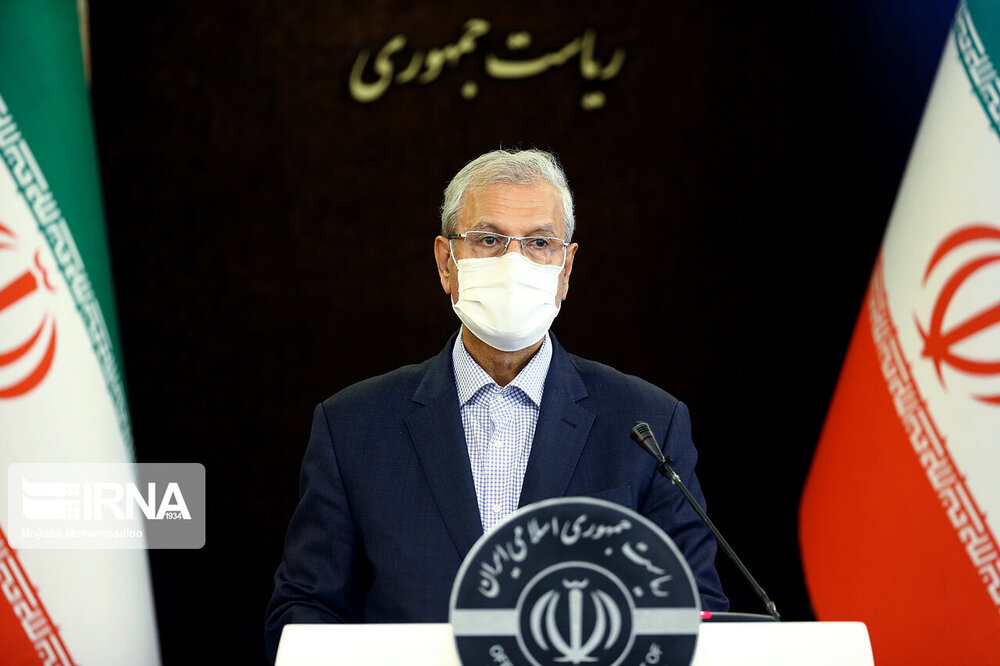Iran-China 25-year comprehensive plan for co-op proves failure of efforts to isolate Iran: government

TEHRAN - Government spokesman Ali Rabiei said on Tuesday that Iran and China have drafted a 25-year plan for economic cooperation which proves failure of the plots to isolate the Islamic Republic.
“This plan proves failure of the United States’ policies to isolate Iran, sever Iran’s relations with the international community and also to harm Iran’s will to expand relations with other countries,” Rabiei said during a press conference.
He said that the 25-year plan is based on a win-win approach which “heralds long term cooperation”.
“Recognizing cultural commonalities, encouraging multilateralism, supporting equal rights of the nations and insisting on domestic development are parts of this plan,” the government spokesman explained.
In a meeting on Sunday, the cabinet of ministers approved the final draft of the 25-year comprehensive cooperation plan between Iran and China.
Rouhani said the strategic partnership between the two countries is based on a win-win approach.
“This cooperation is a ground for Iran and China’s participation in basic projects and development of infrastructure, including the large ‘Belt and Road’ initiative, and an opportunity to attract investment in various economic fields, including industry, tourism, information technology and communication,” the presidential website quoted Rouhani as saying.
‘Anti-Iran resolution of IAEA shows weakness of Europeans’
Rabiei also said that an anti-Iran resolution by the Board of Governors at the International Atomic Energy Agency shows the Europeans’ weakness in the face of the U.S. bullying.
He added that Europe is giving in to the U.S. pressure which will affect its future in the world.
The 35-member IAEA board passed a resolution on Friday demanding access to two old places it claimed nuclear work may have been done there.
China and Russia opposed the resolution and seven countries including South Africa, Niger, Mongolia, Thailand, the Republic of Azerbaijan, Pakistan and India also abstained to vote.
France, Britain, and Germany, the three European parties to the 2015 nuclear deal, submitted the draft resolution to the IAEA board on Thursday. The board did not succeed to approve the resolution on Thursday due to opposition by Iran and China. However, the resolution was ratified on Friday despite Russia and China’s opposition.
Iranian Foreign Minister Mohammad Javad Zarif has said the three European countries signatory to the 2015 nuclear deal are absolutely powerless against the U.S. coercion.
“E3 must stop public face-saving and muster the courage to state publicly what they admit privately, their failure to fulfill even own JCPOA duties due to total impotence in resisting the US bullying behind the facade, E3 are accessories to Trump and Netanyahu—and in no position to counsel Iran,” Zarif wrote on his Twitter account on Friday.
Experts are of the opinion that the resolution was proposed under pressure by the Trump administration and Israeli Prime Minister Benjamin Netanyahu, a fierce opponent of the 2015 nuclear deal, officially known as the Joint Comprehensive Plan of Action (JCPOA).
NA/PA
Leave a Comment